Is Jordan Safe? 9 Essential Travel Tips for Visitors
How safe is Jordan for travelers? Solo traveler turned tour guide, Cassandra Brooklyn, shares her tips on what you need to know before you travel to this incredible Middle Eastern destination.
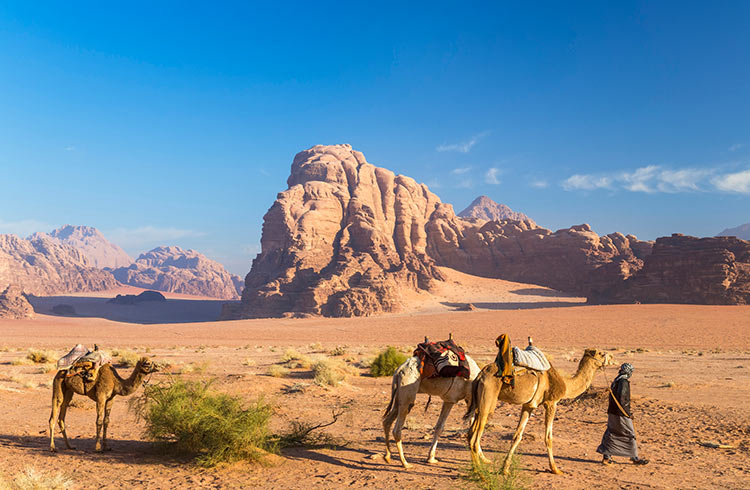 Photo © Getty Images/Mint Images
Photo © Getty Images/Mint Images
During a 10-day solo backpacking trip through Jordan in 2015, I fell madly in love with the country. The landscape was extraordinarily diverse, the food was incredible, and the people were unbelievably kind – stopping me several times per day to ask if I needed help with translation, securing a taxi, or finding my way.
I was astounded there weren’t more travelers and I wanted to change that. I now lead group trips to Jordan and believe it’s a great way to see the country, but I often travel alone and want other solo travelers to feel safe exploring Jordan.
Here are nine of my top tips to help you stay safe in Jordan.
- Is Jordan safe?
- Theft and crime
- Safety for LGBTQ+ travelers
- Travel scams in Jordan
- Safe transport in Jordan
- Can you drink tap water in Jordan?
- Food hygiene in Jordan
- Nightlife safety in Jordan
- Civil unrest and terrorism
1. Jordan is a safe country
While the media often depicts tension across the entire Middle East, know that Jordan is a very safe country. According to a World Economic Forum Report, it’s even safer than Germany or Great Britain. Stealing from or harming tourists is strongly frowned upon by locals and harsh punishments exist for offenders. As a result, travelers can explore the country confidently.
You may observe a strong security presence and metal detectors at hotels and public buildings, tourist police at major sites, and military checkpoints around border zones. This security presence is not in response to crime, it’s in place in order to prevent it.
2. What's the likelihood that a traveler will be a victim of crime or theft in Jordan?
Though Jordan is a very safe country, petty theft, and crime do exist. Exercise the same safety precautions you would at home and be especially careful with your passport.
- Keep your wallet/purse close
- Carry only as much cash as you need
- If you’re heading home late, take a taxi instead of walking
- Carry the business card of where you’re staying so a taxi can bring you right to the door.
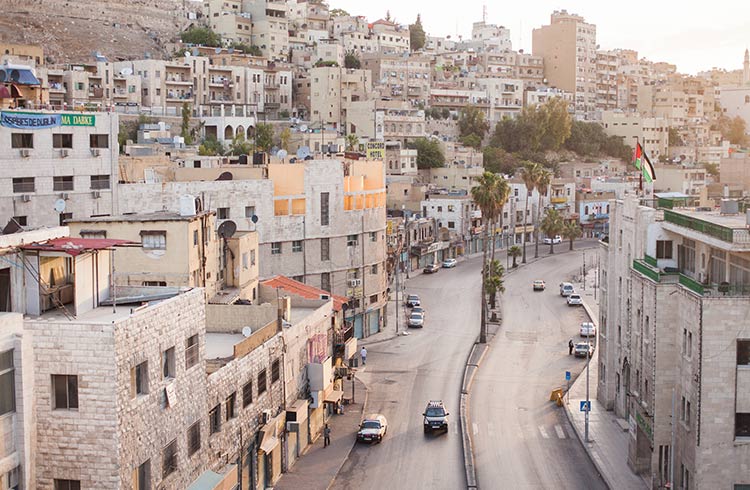
3. Is Jordan safe for LGBTQ+ travelers?
Jordan is one of the most, if not the most progressive countries in the Middle East. People in large cities and well-traveled places like Amman, Petra, and Wadi Rum are used to seeing and meeting people from different cultures. LGBTQ+ travelers do not typically have any issues in Jordan but may draw some stares, particularly in small villages if they are affectionate in public.
Catcalling can happen occasionally (as it does in many Western countries), but Jordanian people are extremely peaceful, so even if they do not agree with someone’s sexual orientation, they are unlikely to interfere.
4. Travel scams in Jordan
In general, travelers are respected and treated fairly in Jordan, but some scams do occur.
- A common scam in Petra and Wadi Rum is for Bedouin men to woo single women (sometimes to a cave), only to request money later, sometimes long after she’s returned home
- So-called antiques may turn out to be last year’s leftovers with a thick coating of dust
- Cheap imports are sometimes sold as locally-made crafts
- Taxi meters occasionally quote fares in fils, not dinars, and unsuspecting visitors may overpay.
5. What is the safest way to get around in Jordan?
An organized bus transportation system is in place between most major sites and attractions. Visitors are recommended to catch licensed taxis at major hotels and agree to a fare before getting in or ask the driver to use the “O meter”.
In the event that a driver attempts to pick up other passengers, object! It’s normal in Jordan, but it can make a traveler feel uneasy.
Travelers are welcome to join locals in minibusses and shared taxis, and are often looked after by their fellow passengers. Know that drivers and passengers may only speak Arabic and there won’t be infrastructure or signage in place to alert riders when they’ve arrived at their stop.
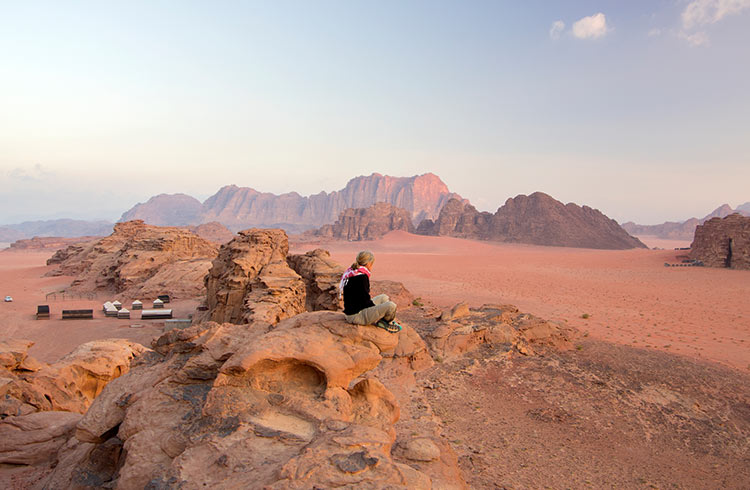
6. Is the tap water safe to drink?
Although some locals drink tap water, it is recommended to avoid drinking tap water, instead drinking purified, boiled water or bring a water filtering bottle. It is completely safe to shower and brush your teeth using tap water.
7. Food hygiene in Jordan
Middle Eastern food is world famous for good reason. Many of the most popular dishes are plant-based – falafel, hummus, baba ganouj – and tend to fare better sitting at room temperature for extended periods.
Street food enthusiasts should avoid ordering meat that looks like it’s been out for a while. Fruits and vegetables are safe to eat, but remember to wash all produce bought in open-air markets before eating.
8. Nightlife safety in Jordan
As a majority Muslim country, alcohol is not as commonplace as it is elsewhere, but drinking is not a taboo. Foreigners are welcome to drink alcohol but should exercise the same caution they would in other countries. Avoid getting drunk and take a cab home if you’ve had too much. The capital city Amman’s traffic is heavy and chaotic and can be unsafe for pedestrians under the influence.
9. Civil unrest and terrorism in Jordan
The likelihood of civil unrest and terrorism in Jordan is extremely slim. If you’re still concerned about the possibility of terrorism while visiting, learn more here.
Traveling to Jordan soon? Get a travel insurance quote.
Related articles
Simple and flexible travel insurance
You can buy at home or while traveling, and claim online from anywhere in the world. With 150+ adventure activities covered and 24/7 emergency assistance.
Get a quote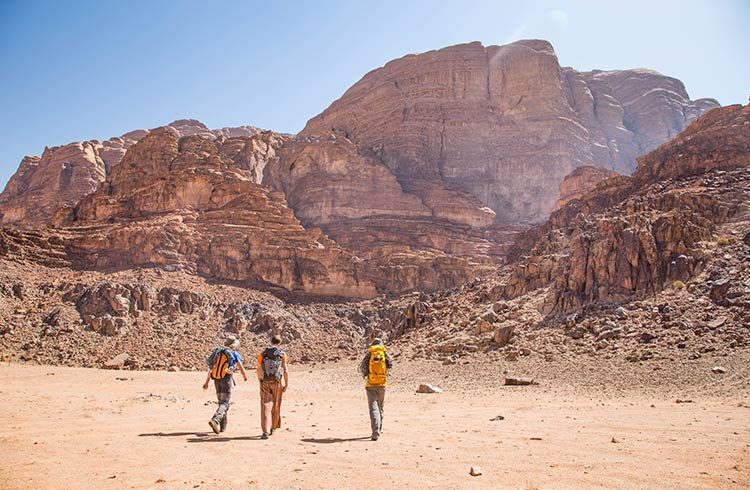
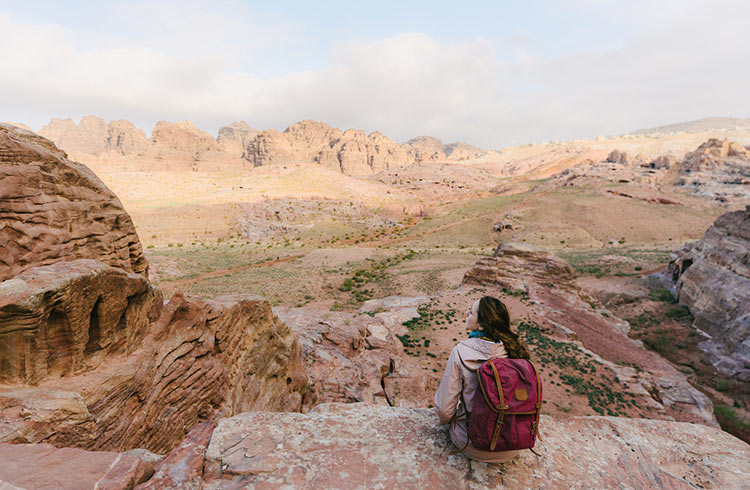
No Comments